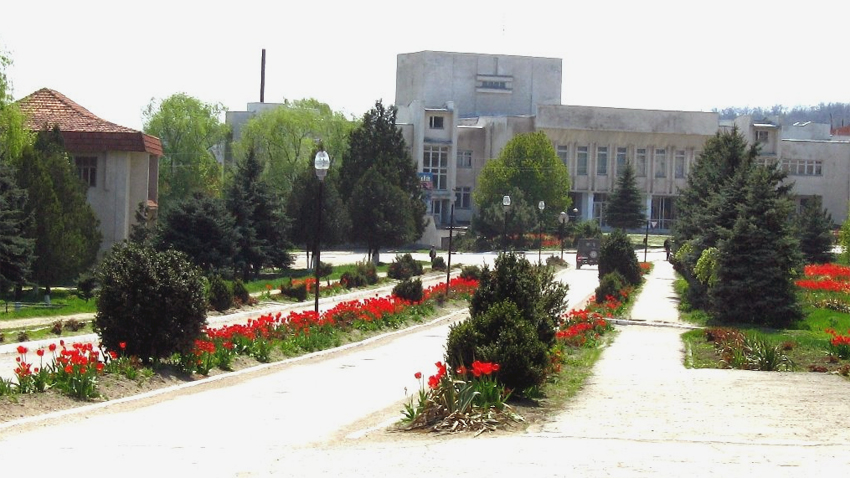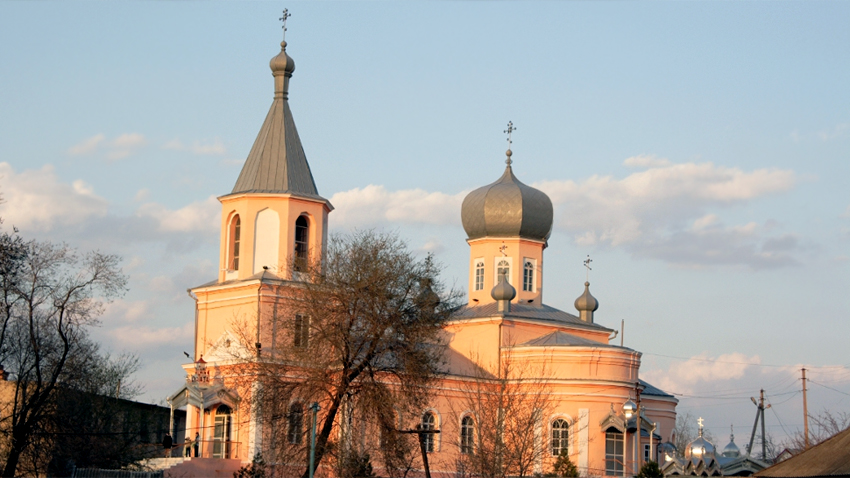
Politicians, military men, scientists, writers, artists ... These are just some of the Bessarabian Bulgarians who have contributed to making our country the place we know today. Among them are the first rector of Sofia University - academician Alexander Teodorov- Balan, Prime Minister Alexander Malinov, army generals Ivan Kolev and Danail Nikolaev.
Having arrived from the regions of Sliven, Yambol and Varna during the Russo-Turkish War, today Bessarabian Bulgarians are about 100,000. Unofficially, their number reaches 300,000. While taking care of Bulgarian communities abroad, Bulgarian authorities seem to be neglecting the problems of our compatriots in Moldova.
More about them from the personal observations of the former correspondent of the Bulgarian National Radio for Romania and Moldova Georgi Vasilski:
“The problems of the Bulgarians in Moldova can be viewed in several aspects. We start with the economic aspect. We are talking about 4 million people with an average salary around 240-250 dollars a month at prices that are comparable to Bulgaria. In this situation, people are in every way trying to survive - mostly by working abroad. Culturally they try to survive by seeking their roots. But there is a big problem and it is that in Moldova it is very hard to receive the signal of Bulgarian radio and television, except via the Internet. That could change via an active dialogue between the two countries. They should make it possible that the national programs of the Bulgarian National Television and the Bulgarian National Radio reach the areas of compact Bulgarian population.”

The issuance of a passport is also a major test for the Bulgarians there because of the heavy red tape here in this country. It is in our interest to facilitate the procedure because in this way we lose not only people who identify themselves as Bulgarians, but also students who want to study at home but cannot.
The town of Taraclia is the centre of the Bulgarian community in Moldova. About 15,000 people live there - mostly Bulgarians. Some of them do not speak Moldovan but they observe all Bulgarian customs and do not face problems due to their nationality. In Taraclia there are the Bulgarian School "Vasil Levski" and a Bulgarian University. Their maintenance is not easy because the money that Bulgaria allocates goes into the budget of the Moldovan Ministry of Education. There their tracks get lost and no more than half of the funds actually reach the schools.
And another problem concerns the Bulgarian community in the region - the new territorial division of Moldova, which will affect also Taraclia:
“This new territorial division is used very often, first for electoral purposes, because there democracy is at a lower level even than Bulgarian democracy. The very attempts to territorial division pose the risk of depopulation of certain regions and closure of the Bulgarian region Taraclia. We have a very strong position that we should always stick to. Moldovan governing elites always say they are pro-European and want entry into the EU, or at least closer contacts with the countries there. Our Foreign Ministry and other bodies related to our foreign policy must put forward the matter in such a way as to ensure the territorial integrity of Bulgarian regions in Moldova against our support for the Moldovan state.”

Bulgarian authorities should more forcefully intervene also because of what is happening with the mayor of Taraclia Sergey Filipov, against whom legal proceedings have been in place since the end of 2014. He has been accused of abuse of power, because the felling of several dead trees in the city park. He was sentenced to pay about 15,000 leva for the damage that he allegedly caused to the state and has no right to occupy state or municipal office for a term of two years. The reasons for the judgment will be announced within several days, on May 5. It is obvious, however, that his trial is a political one. The reason is that while working in the poorest region of Moldova, with his work as mayor he has managed to transform Taraclia. People appreciate his deeds and despite the repression and prosecution, he won a second term in the elections held last year. There is another reason Filipov is inconvenient for those in power. Together with the President of the Autonomous Territorial Unit of Gagauzia Irina Vlah and several Moldovan politicians, they oppose those circles amongst the ruling politicians advocating the country's accession to Romania.
Their fight for a common cause to preserve Moldova as a sovereign state, respecting the autonomy of the Bulgarian and Gagauzian minority, makes many people stand behind Irina Vlah and Sergey Filipov. While Bulgaria is 1,000 kilometres away, the clearly stated Bulgarian position in their support will reverberate also there.
English: Rossitsa Petcova
Photos: taraclia.netWorld Radio Day - 13 February, this year is dedicated to climate change. The choice is no coincidence—2025 has been identified by the Paris Agreement as a crucial year for humanity to achieve its long-term goal of limiting global warming to a maximum of..
“On 13 February this year, Bulgarian consumers must not shop at any of the grocery stores, at any of the chain stores, at any of the supermarkets! On 13 February grocery stores must be left empty, with not a single buyer in them,” the organizers..
A team of 12 Bulgarian 11th grade students, led by Elitsa Pavlova, won first place among participants from around the world in the prestigious Live in a Healthy Space Design Competition organized by the National Space Society (NSS)..
On February 16, Radio Bulgaria celebrates its 89th anniversary . Throughout these years, our multilingual media has been not only a channel of information,..
At various times in its existence, the BNR's Directorate of Foreign Language Broadcasts, now known as Radio Bulgaria, the multimedia multilingual platform..
February 16, 2025 marks the 127th anniversary of the first bulletin of the Bulgarian Telegraph Agency, signed by its first director Oscar Iskander. The..

+359 2 9336 661
